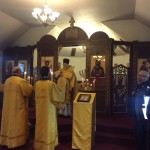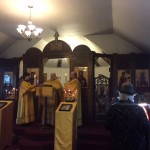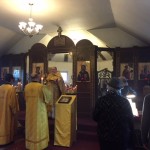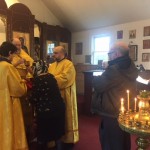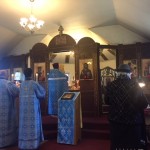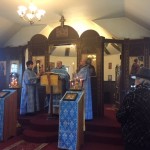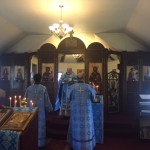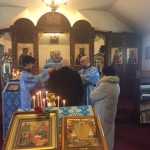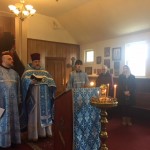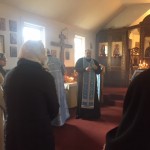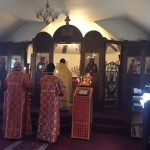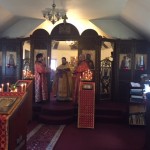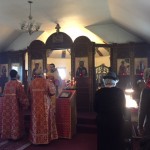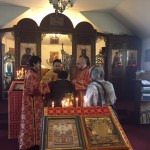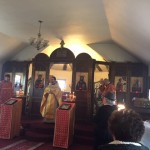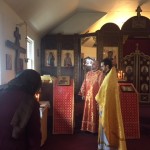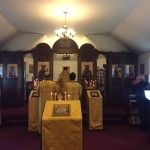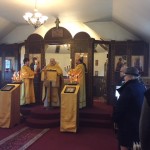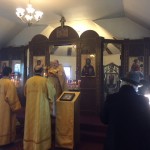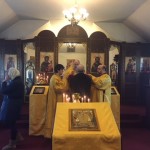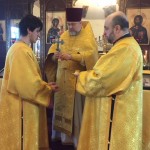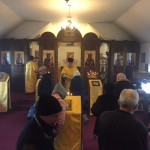The Annual Parish Meeting of St. George Church was held on Sunday, February 24, 2019, following the Divine Liturgy and coffee hour. Rector, Archpriest Igor Tarasov presided.
Church Warden, Olga Roussanow read the minutes of the last Annual Meeting held in 2018. The Rector had a speech regarding the present situation when our church property presently owned by St. Nicholas Cathedral may be sold. As it had been recently known, a group of our parishioners being unhappy with such perspective, wrote a letter to the local authorities asking to hinder the sale. It is known that the Rector never approved such actions of the parishioners. The sale was blessed by the former Administrator of the Patriarchal Parishes, Bishop John, and Fr. Igor had been obedient to the will of the hierarchy. However, a group of people decided to act on their own. Thus, the situation was discussed at the Meeting. At this time, it is uncertain whether the actions of the said group had any result. But for that reason no renovation projects and other plans for beautification of the temple can be made.
Further the Rector reported on financial situation. He informed that parish income in the year 2018 was much lower because in 2017 we received a generous contribution for our renovation project. In 2018 no such generosity was shown but we had a special donation of $ 1,500. Our expenses were about the same as in previous year. We had a deficit of around $ 600. The Parish is in a great financial need. Parishioners still do not cover all our spending.
The financial report caused some discussion. Some parishioners pointed out that the expenses for Bishop’s visitation can be reduced in the future. Yet others disagreed stressing that it is important for the spiritual and general parish life to host hierarchical services on some occasions. The latter opinion was supported by the Rector.
The Rector stressed that the parish, first of all, has to be supported by parishioners. Their contributions are supposed to be the main source of income. We cannot rely on expectations of special donations of non-parishioners or on some uncertain business projects. However, some persons present argued that they have a limited income and are not able to fully support the church.
The Rector finalized the discussion and concluded the Meeting stating that any future financial concerns will be addressed if the parish will continue to function.

